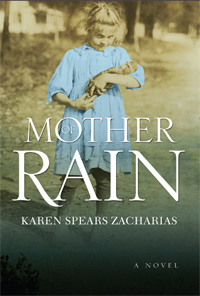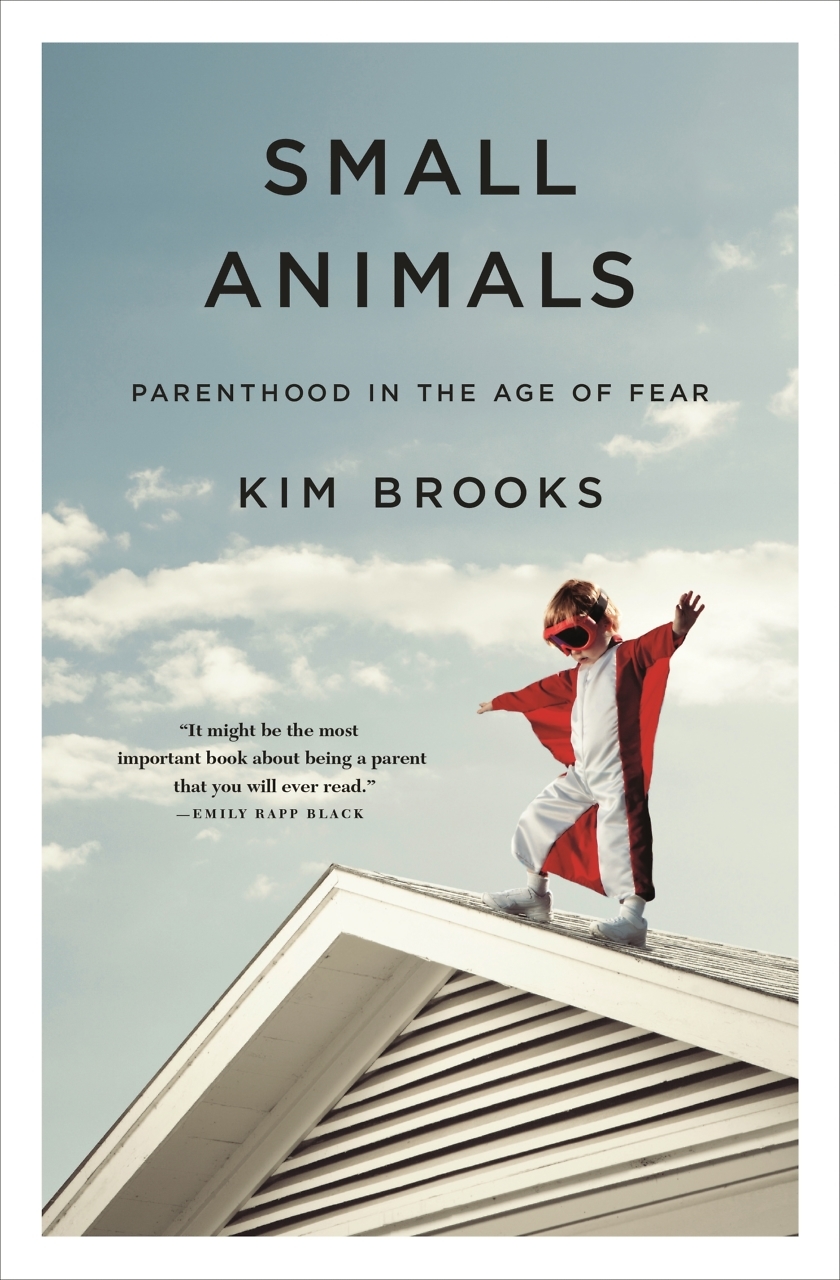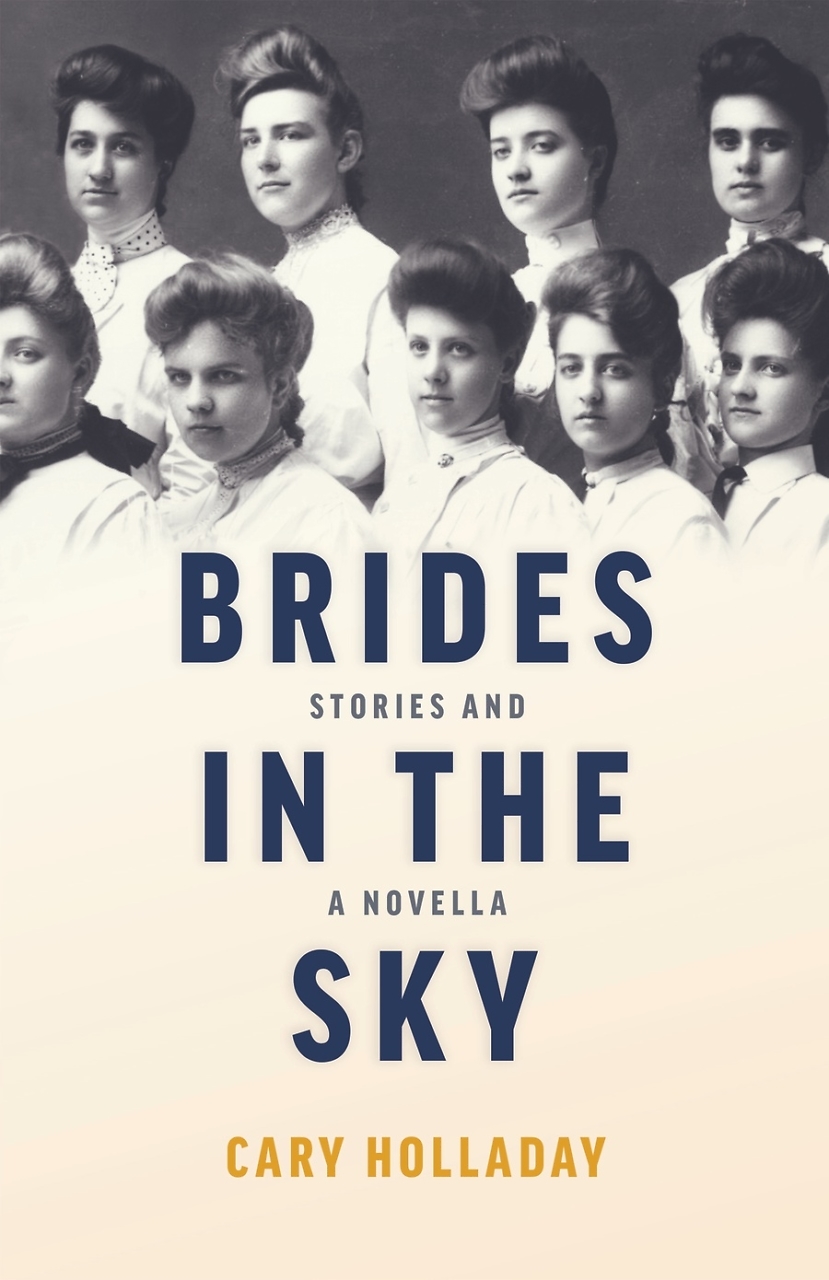Authentic Appalachia
In a new historical novel, Karen Spears Zacharias conveys a complex drama set during a supposedly simpler time and place
Mother of Rain is Karen Spears Zacharias’s first novel after many credits in non-fiction, journalism, and memoir. Using the idiom of the time and place—a small, close-knit, East Tennessee community as the Depression yields to World War II—the story follows the struggles of Maizee Hurd as she suffers through a series of setbacks from childhood on: the gruesome early death of her mother; her father’s rejection; the birth, illness, and resulting deafness of her infant son, Rain; and the disappearance of her husband during the war. Though family and community support helps, her hold on sanity remains tenuous.
 Maizee is gripped by what might be called grief-induced schizophrenia. She starts hearing voices soon after her mother’s death and periodically thereafter in times of stress. She is prone to hallucinations—“A brigade of roaches, some nearly three inches long, would line up around the bed in the morning”—she cuts herself, refuses to bathe, can’t get out of bed, and is afraid the self-destructive voices may drive her to harm her son, too. Her aunt and uncle try to protect her from distress, she knows, “‘cause they figured me to be weak-minded and they feared bad news might render me altogether addled.”
Maizee is gripped by what might be called grief-induced schizophrenia. She starts hearing voices soon after her mother’s death and periodically thereafter in times of stress. She is prone to hallucinations—“A brigade of roaches, some nearly three inches long, would line up around the bed in the morning”—she cuts herself, refuses to bathe, can’t get out of bed, and is afraid the self-destructive voices may drive her to harm her son, too. Her aunt and uncle try to protect her from distress, she knows, “‘cause they figured me to be weak-minded and they feared bad news might render me altogether addled.”
Maizee’s story is not Zacharias’s central thematic concern, however. Mother of Rain is much more essentially an exploration of the nature of community in a rural setting. The people inhabiting Christian Bend are a sympathetic group, including the childless aunt and uncle who take Maizee in when her father abandons her; Burdy Lutrell, the mysterious, dark, Melungeon healer from over the mountain; Zebulon, Maizee’s devoted husband, among others. Zacharias gives many of them their own chapters. Zeb’s mostly feature his experiences in the Army as a paratrooper during the D-Day invasion, though his chapters also include many flashbacks to the center of his life, Maizee and Christian Bend. All the other chapters are rooted there.
The fictional folks of Christian Bend are more authentic than the actual people in any social history. Zacharias convincingly portrays what they eat and wear, how and where they work, their favorite places for solitude, fishing, or love-making, and the role of religion in their lives, and the descriptions of rooms and furniture, amusements, and mannerisms reveal the memoirist’s skill. There’s little mention of any schooling, and some characters hold to what contemporary readers would call superstition. When Maizee gets bad news, for example, “Burdy came over early the morning after I got word of Zeb’s death and hung sheets over the mirrors, to keep the spirits at bay.” But the people of Christian Bend also discuss complicated concepts like predestination as they “worked topping and suckering tobacco” until the “sharp whistle of a white-crowned sparrow interrupted.”
Mother of Rain offers plenty of tragedies, jealous tension and foreboding, nightmares and visions, but no real villains. Even Zeb’s sergeant in the Army is a sensitive counselor, and, back home, the community “mucckly low-down … juker” and the gossipy telephone operator, are, in the end, sympathetic characters who try to help Maizee weather her storms.
In simple prose, Mother of Rain preserves the lives, voices, and places Zacharias knew from summers spent with her aunt and grandmother in Christian Bend, Tennessee, in Hawkins County. Zacharias portrays the fields, mountains, rivers, and creeks that her characters’ love with the sensitivity of someone who knows and loves them, too.


